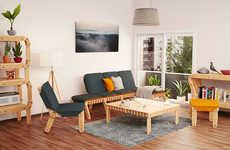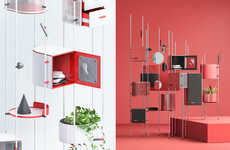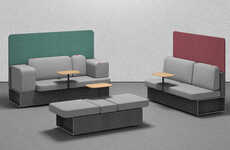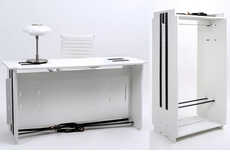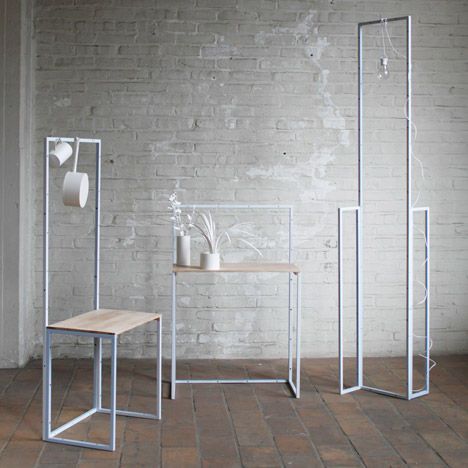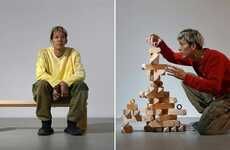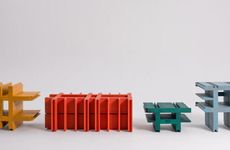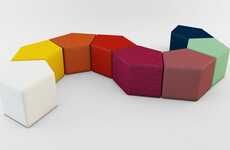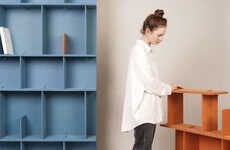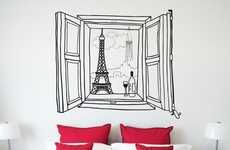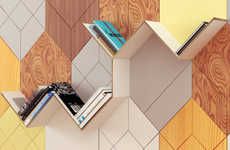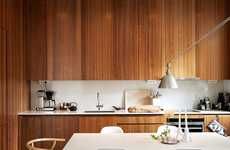
The Flexible Order Project Creates an Order Within an Order
Vasiliki Marapas — November 10, 2014 — Art & Design
References: hifabricia & dezeen
Fabricia Chang, a graduate from the Design Academy Eindoven, is behind the 'Flexible Order' project, a collection which consists of several frames that attach together to form modular furniture pieces. The pastel-colored frames can be joined to make different shapes or compositions, making them as versatile as they are transportable.
Each frame is outfitted with a set of holes along the sides, which match up to rectangular pieces, allowing them to stand on their own. Wooden hooks and boards can be added to the frames to differentiate the use and function of the structure to better suit individual needs.
Chang explains, "[Flexible Order] enables users to create their own order within a given order. With this system, a new relationship between freedom and order is achieved."
Each frame is outfitted with a set of holes along the sides, which match up to rectangular pieces, allowing them to stand on their own. Wooden hooks and boards can be added to the frames to differentiate the use and function of the structure to better suit individual needs.
Chang explains, "[Flexible Order] enables users to create their own order within a given order. With this system, a new relationship between freedom and order is achieved."
Trend Themes
1. Modular Furniture - Take advantage of the increasing demand for modular and versatile furniture pieces by creating a platform that enables customers to create and customize their own furniture designs.
2. Transportable Furniture - Design and produce lightweight, portable furniture pieces that are easy to assemble and disassemble for consumers who are on the move or live in small spaces.
3. Customizable Furniture - Leverage the trend for personalized products by offering customizable modular furniture pieces that can be adapted to fit any space or need.
Industry Implications
1. Furniture Design - Explore opportunities to innovate in the furniture industry by creating modular furniture pieces that can be customized and assembled in various configurations to meet consumers' needs.
2. Interior Design - Partner with interior designers and architects to create modular and transportable furniture pieces that can be used in a variety of spaces and settings, from homes to offices and beyond.
3. Home Goods Retail - Carry modular furniture pieces that are unique, lightweight, and customizable to attract customers looking for furniture that can adapt and evolve with their changing needs.
2.7
Score
Popularity
Activity
Freshness


